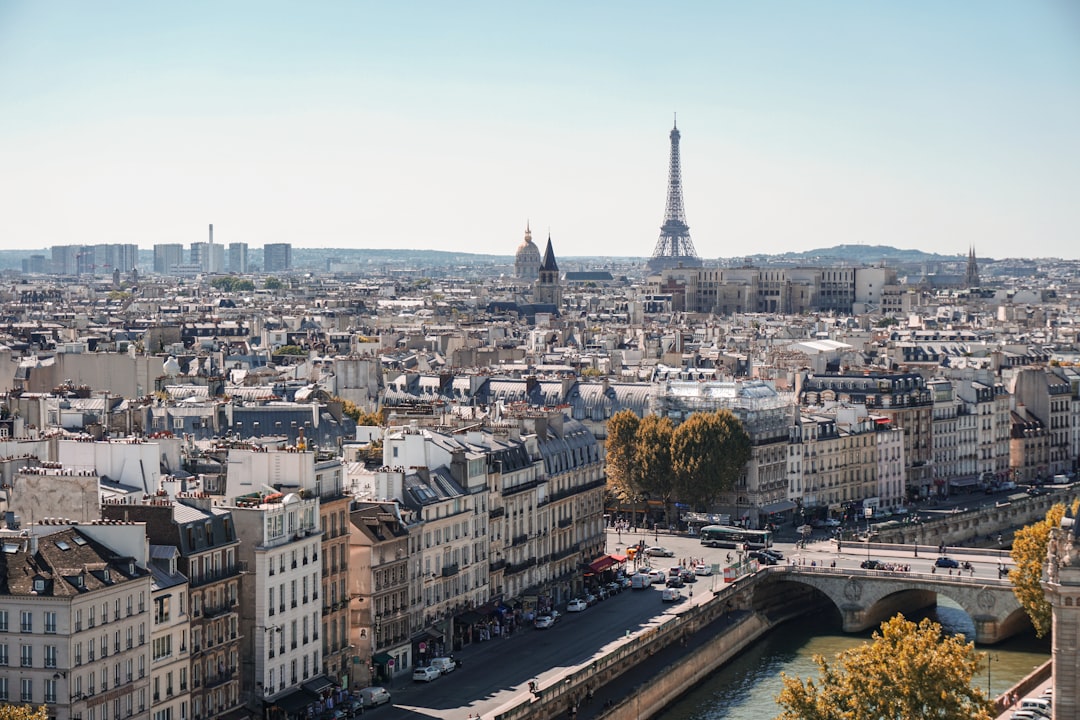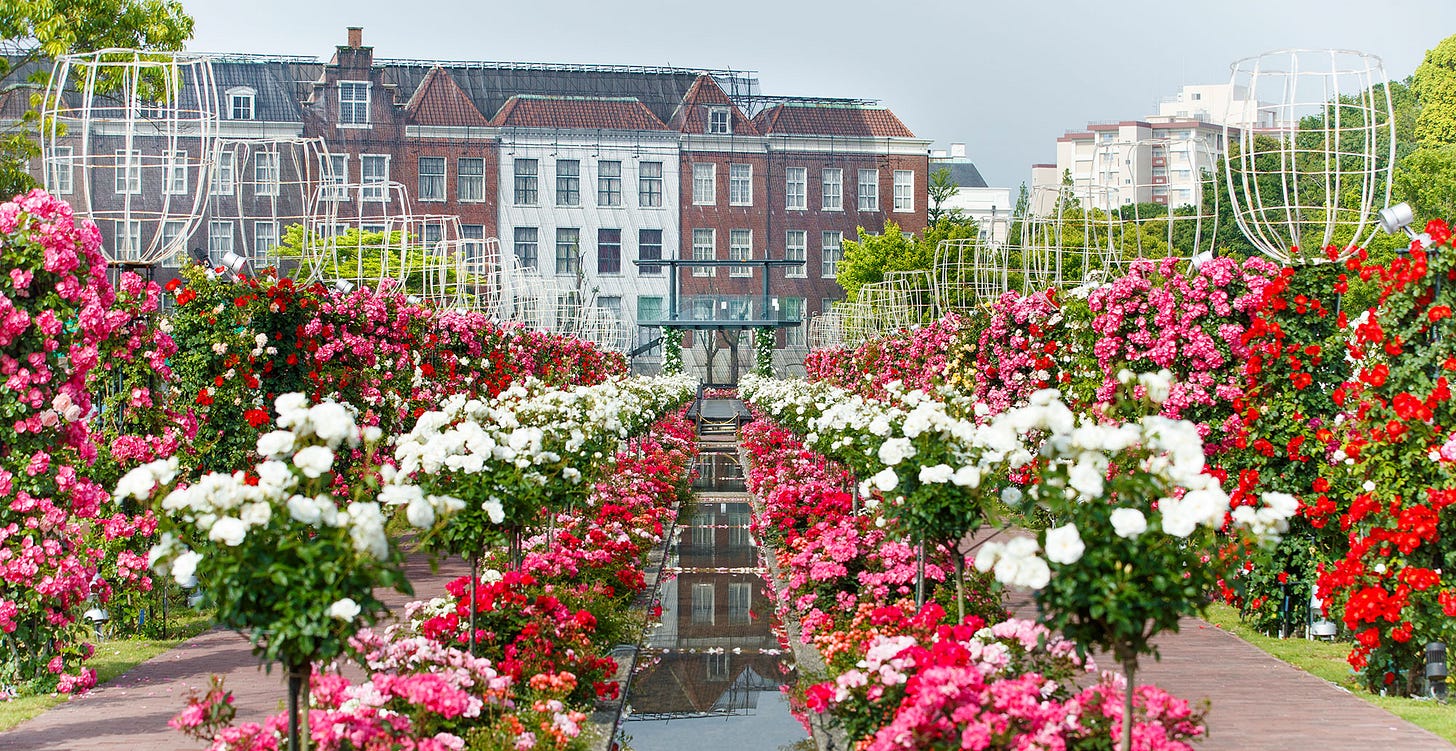How Japan created the Paris Syndrome
The role of theme parks in ruining Europe for the Japanese
The idea of Paris looms large in Japan. So much so that there is a cultural phenomenon that Japanese tourists tend to experience, known as the Paris Syndrome. Upon arriving in Paris, some Japanese tourists have been known to experience real physical discomfort including hallucinations, sweating, dizziness and even sweating. I know being in France might not be everyone’s cup of tea, but these are people who have chosen to go there.
The classic and commonly accepted diagnosis is that Japanese tourists expect everywhere to be as clean as Japan. Yes, Japanese people are accustomed to cleanliness and politeness whereas France isn’t necessarily famed for these qualities. For anyone who has been to Paris, they’ll know that the city has incredible landmarks, historic neighbourhoods, and iconic buildings. But those same neighbourhoods built hundreds of years ago were also cleaned hundreds of years ago.
For a humble Japanese tourist who has seen Paris in classic films and manicured posters, the smells, dirt, and grime of a rat infested ancient city doesn’t fully translate until you see it for yourself. Ratatouille is only cute and whimsical when you aren’t the one with rats in your hair. But I’m not going to criticise these poor people who are traumatised by France. Nor am I suggesting that they shouldn’t feel like the actual Paris isn’t what they expected. But my thesis is that the cleanliness factor isn’t the only juxtaposition at play here.

Whose idea was it to make Paris beautiful?
The credit of creating a beautiful Paris in the minds of Japanese tourists doesn’t only go to to the powerful Parisian marketing board (and every incredible architect, engineer and eccentric ruler over 2000 years). In this regard, Japanese dream-makers must shoulder some of the blame.
Like an inverted weeaboo, a large portion of Japanese tourists grew up on European fairytales drip-fed through Disney and classical films. Honestly, ever since Matthew Perry (the American Commodore, not Chandler) arrived in Japan, the fascination with European cities and culture has endured. This nation-wide Europhilia has manifested itself in several ways, from classical art, to an early industrialisation, and even a brief desire to subjugate Asia. It has also meant Japan has tried to replicate Europe within its own borders.
Where in the world am I?
Japan has both the demand for theme parks and for place-based themes. Bigger budget multinational parks can bring impossible and inaccessible locations to tourists: Tokyo Disney Sea has claimed the entire underwater world, while Universal Studios Osaka brings the magic of the Harry Potter universe and Nintendo Land direct to audiences.
Humbler local theme parks have tried to mimic this concept, but given their limited budget, they tend to be less ambitious, concept-wise. The theme many have settled for is ‘European country’. Examples are surprisingly abundant.
Huis Ten Bosch in Nagasaki boasts the title of largest theme park in the country. Their theme is ‘the Netherlands’. What could attract investment and development in such a concept? The very tenuous link of having a Dutch trading post in the area in 1609… 35km away from the theme park.
To recreate the Netherlands the park has included life-sized Dutch buildings, windmills, and loads of tulips. Other features include a 3-storey merry go round, Jurassic Island, and a hotel entirely staffed by robots. While this may be an accurate representation of the Netherlands after partaking in one of their most famous products, it can paint a distorted image of the country for Japanese tourists.
Europe through the eyes of Japan
Surely this is an isolated case of a Dutch-obsessed eccentricity right?
Enter Le Soleil in Yokosuka, and Shima Spain in Ise, oh and also, Dreamton Village, an English styled theme park in Kyoto, and the Tokyo German Village (not in Tokyo, German, or a village) It’s almost harder to find a European country without a Japanese theme park.
Now each of these parks attempt to share their unique cultures with a delicate and sensitive touch. They typically employ travelling workers from the represented countries and tend to portray the countries in a positive light.
They are also commercial entities that need customers. That means Shima Spain is more than just a recreated set of classical style Spanish town buildings (Toledo, Pamplona). The more unrealistic (but tourist-attracting) aspects include steampunk bull-fighting rollercoasters, Gaudi’s carousel and helping a character named Choquy defeat goblins. I don’t mean to pick on the wackiness of the theme; after all, one of Disney’s biggest hits was a slow water ride looking at vignettes of pirate life.
Who’s fault is it anyway?
I find it hard to blame the Paris Syndrome as a severe case of first world problems. While extreme theme park theming isn’t exactly the worst instance of fake news, I want to emphasise that Japanese people face a barrage of false information perpetuated by BIG theme park. The expectations of a perfectly serene and Disneyfied France isn’t because people expect the country to be as clean as Japan… it’s because they expect it to be as clean as Disneyland.
The burst bubble of reality is enough to make anyone suffer. Were you equally disappointed by Paris or other travel locations? Have you been deceived by theme parks? If this has happened to you- comment below!




Theme Parks: A simpler theme category is "Theme Restaurants." In the US there are restaurants like "57th Squadron" and "94th Squadron" which are restaurants on country airport runways with a "WWII fighter squadron" theme. On the outside patio you look at personal jets landing and taking off. Inside you can admire all the antique black and white framed pictures of framed WWII pilots--many of them killed in the war. I love that place, and the THEME allows your spirits to float above the actual past realities of say . . . 20 year-old airmen being shot down and burning to death before crashing into the ocean. "Themes" can strip out the unpleasant, grittier parts.
"Cruises" like "Princess Cruises" also promote "Theme Life." A week on a cruise ship is like a week "Within A Theme" . . . a week of Food, Drink, Sea, Air, Light Entertainment, Maybe Sex. The Reality of the Support System--the army of workers living "below deck" and enduring a semi-slave work schedule at low wages is hidden from you.
Matthew Perry and his fleet were americans.
I love this japanese infatuation with historical european esthetics. I don't really consume japanese media but I noticed that many japanese anime, games and even rock bands feature european castles, palaces and historical fashion while western media is much more likely to deconstruct, denigrate, falsify and uglify Europe's enchanting past with Cleopatra from Netflix being just the latest example (technically Middle East history but you get the point).